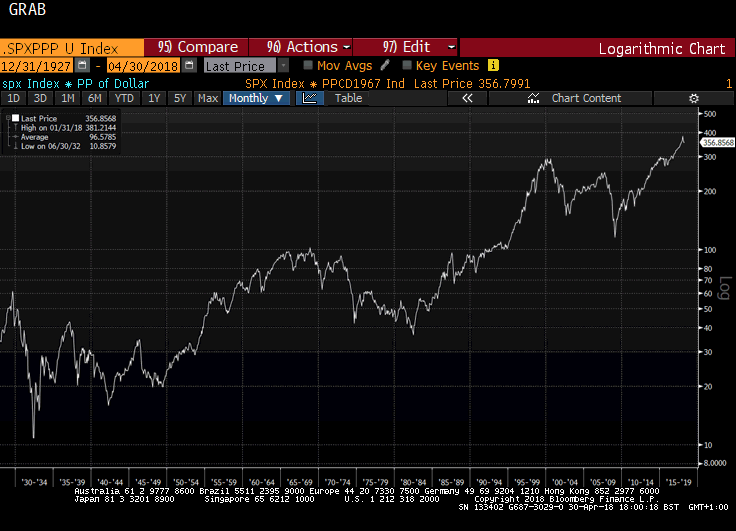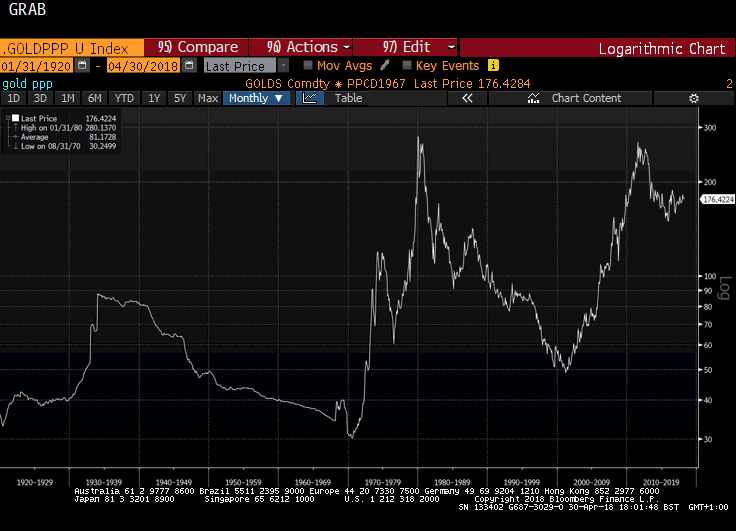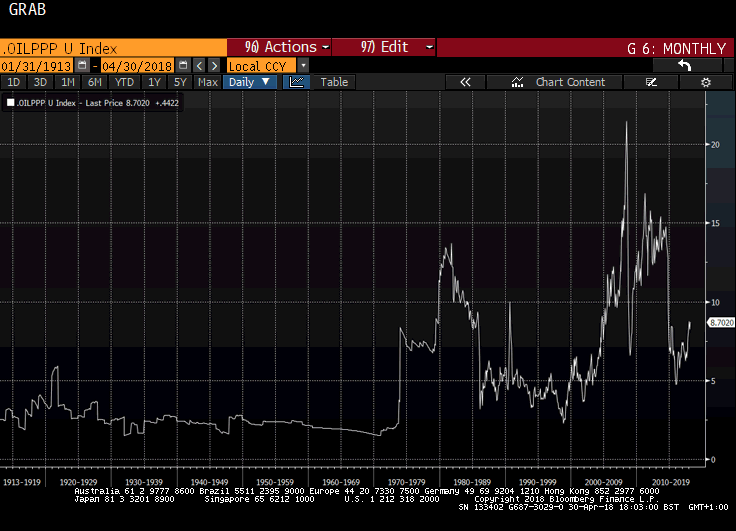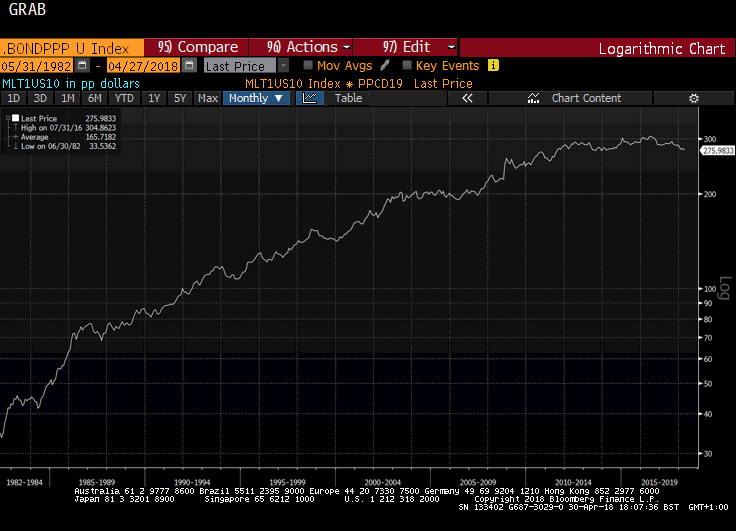Email of the day on the long-term outlook and potential for inflation
In your 10/April long-term themes review, you said: "So, the big question many people have is if we accept the bullish hypothesis how do we justify the second half of this bull market based on valuations where they are today? ..... However, the answer is also going to have to include inflation. "
My thoughts, not in any particular order:
If we look at Robert Shiller's research ~1870-now, on the US share market, his studies show that historically, extreme valuations in the US share market (as assessed by cyclically adjusted P/E ratio) have always been followed by poor average real return over the following 10-20 years."
You point to inflation as to how a secular bull market (in nominal terms implied) can now occur for the US share market (by implications I think you are reflecting on the US share market) over say the next 10-15 years (say). You use the experience of Argentina and Venezuela as justification for your argument - where from memory, there was hyperinflation in the periods to which you refer.First, I do not think you are suggesting hyperinflation for the USA .... mismatch 1.
For Argentina and Venezuela, I think their currencies also crashed. I do not think you are suggesting the US dollar is going to crash. Possible mismatch 2.
Rather than a comparison with Venezuela and Argentina, perhaps a better analogy is to the period in the USA following the late 1960s, when US share markets where at quite high valuations (though not nearly as expensive as now on a CAPE basis). Following the peak valuations of the late 1960s, the US share market went sideways (with some large dips) over the next 16 years or so.In summary, I am not sure that your argument is particularly robust. Yes, the technological revolution is a critically important new phase which will have a huge impact over the next 10 and 20 years..... and there may well be a secular bull market in that sector ... but does that really mean that the technology sector by itself will take the whole S&P500 with it in a secular bull market for the next 10 or 20 years?
Your thoughts?
Thank you for this question which gave me plenty of room for thought. My first reflection is that one of the benefits of this service is the Socratic dialectical method unfolds in real time as these big topics offer endless room for discussion and revision. I spent a good deal of time talking about long-term cycles in the Big Picture Video on the 27th which you may find of interest.
The stock market is a better hedge against inflation than bonds because companies have the ability to raise prices and therefore dividends while bond coupons are fixed. If inflationary pressures rise then stocks are likely to be a better harbour than bonds. Of course, that is a very broad statement, it would probably be more correct to say that companies that have pricing power and high margins are likely to do best in an inflationary environment.
I think there is a lot of confusion about the long-term outlook for currencies. When we say a strong Dollar or other currency it is only ever in relation to another currency. However, all fiat currencies have lost purchasing power against hard assets like property, gold, oil and stocks over the long-term. You are correct, I am not predicting hyperinflation and the Venezuela and Argentine examples are extreme. However, it would not be hard to see inflation higher than it has been over the last decade and that is likely to flatter nominal prices.
Generational long processes of P/E ratio contraction and rising dividend yields generally tend to follow bubbles. As a veteran subscriber I am sure you will recall that refrain from the long-term audios before the era of quantitative easing. People might not have liked it or been ready for it, but the credit crisis created some wonderful buying opportunities for value investors. That was a decade ago so there are fewer bargains today. If bond yields rise there are logically going to be ramifications for the relative value argument based on the spread between the return on bonds versus equities.
Meanwhile the pace of technological innovation is picking up which is creating new asset classes and new sources of value. The answer then is that earnings growth is the primary argument behind the secular bull market hypothesis. With earnings growth the valuation is kept in check, without it we have a greater risk of valuation expansion becoming a serious problem.




I created these four charts of the S&P500, gold, oil and the total return on bonds adjusted for the purchasing power of the Dollar over the long-term. I believe they offer some useful insight into this debate. Over the last forty years there is no denying that the total return on bonds has been without parallel. This has coincided with one of the greatest periods of disinflation the world has ever seen.
However, the big point is that even on a purchasing power parity basis, the total return on bonds is rolling over, meanwhile gold, oil and stocks are outperforming. The only way I can draw a thread between these competing forces is by concluding that inflationary pressures are rising.
The only problem I have with comparing the current environment to that which prevailed from the early 1960s is that the market spent 13 years ranging from 2000 to 2013 so it would be unusual to begin another similar range so soon after the last one ended.
On clicking through the Autonomies section of the Chart Library. It is worth pointing out that Adidas, AIA Group, Amazon, Richemont, DSM, Ecolab, Estee Lauder, Herbalife, Intel, L’Oreal, LVMH, Microsoft, Nike, Prada, Royal Dutch Shell, Swatch, Tata Consultancy, Visa, and Yum Brands have posted new recovery or all-time highs in the last week. The cosmetics and luxury goods sectors clearly stand out as outperformers and generally tend to have pricing power. The question on my people’s minds will likely be whether these moves can be sustained.
Back to top

